The Top 5 WiFi Extenders in 2021
If you find that the only way to get a solid WiFi connection is by sitting in the same room as your router, then it might be time to invest in a range extender, otherwise known as a WiFi booster or WiFi extender.
Here, we’ll explore just what a WiFi extender is and help you select the right WiFi booster for your needs by picking the top 5 on the market.
WiFi Extenders Basics
Beginners guide for wifi extenders
We’ve all been there-you're streaming your favorite show, or you’re paying bills online or completing a work document and your WiFi signal gets too weak for your internet to run smoothly.
If you have a strong Internet connection throughout your home, then your router is a powerful one that may not need additional help transmitting signals.
How do WiFi Extenders Work?
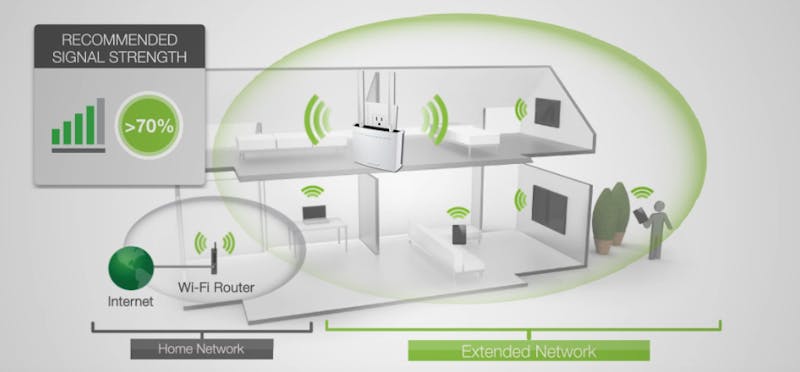
The device works by capturing existing WiFi signals in your home or office and then rebroadcasting them. Small in size, the WiFi extender can expand coverage to areas where your router either doesn’t reach at all or doesn’t reach well. It catches weak signals and retransmits a stronger one in return.
It's important to remember: WiFi extenders boost the existing signal, but won't make your actual WiFi Internet connection faster. Your Internet service and WiFi router capabilities determine this. Therefore, if your concern is overall WiFi speed, consider upgrading your router or Internet service. Generally speaking, 802.11n WiFi routers are fine for most home users, while 802.11ac is even better but may be more than some users need. On the other hand, routers supporting only older WiFi standards, like 802.11a, 802.11b, and 802.11g may cause noticeable performance issues. Newer 802.11ac extenders have the benefit of being backwards compatible with many other standards.
Something to keep in mind after installing one: Check your device settings if you notice continued weak connections. Your phone, laptop or tablet might not recognize the WiFi extender because it will stay connected to your router as a default. The way to change this is by manually switching from router to booster.
Pro Tips for Finding the Best WiFi Extender
When choosing from various range extenders, you’ll want to keep a few things in mind.
-
First, get it from a vendor that is well known and has strongly-reviewed products. Products that are poorly reviewed probably aren’t going to help your bandwidth issues and will only cost you money and undue stress.
If the site you’re searching looks like a well-established company site and they’re not trying too hard to sell you something, chances are they are reputable. Click links and browse product reviews on the main website as well as third-party sites such as Google, Facebook or Amazon.
If the site you’re searching looks like a well-established company site and they’re not trying too hard to sell you something, chances are they are reputable. Click links and browse product reviews on the main website as well as third-party sites such as Google, Facebook or Amazon.
-
Check the specs on your router and try to purchase an extender with the same specs. This will ensure compatibility and enhance the performance of your new device.
For example, you might find a good deal on an 802.11g extender, but it will be much slower than your 802.11n router.
-
Lastly, consider where you’ll want to place the WiFi extender. Obstructions can degrade your WiFi performance. Look for the sweet spot that is close enough to your router to connect, but also positioned to avoid obstructions and maximize signal strength throughout your home.
Fortunately, you'll have some flexibility in placement because WiFi extenders are small items — the size of your router if not smaller — and there are two types. You can opt for the plug-in, which easily plugs into any wall outlet, or you can choose the desktop version, which resembles the router. Some extenders will have antennas to help connect. While the plug-in version is too small to have any additional connections, you can find some desktop versions with USB and LAN ports.
Here are the 5 Best WiFi Extenders
To help you narrow down your search, we’ve compiled a list of the top 5 home WiFi extenders available today.
To help you narrow down your search, we’ve compiled a list of the top 5 home WiFi extenders available today.
We based our choices on a few things: how simple each device is to set up, how strong the rebroadcasting powers are as well as how far they can reach and at which speeds.
Overview
NETGEAR Nighthawk X4 AC2200 Dual-Band Range Extender
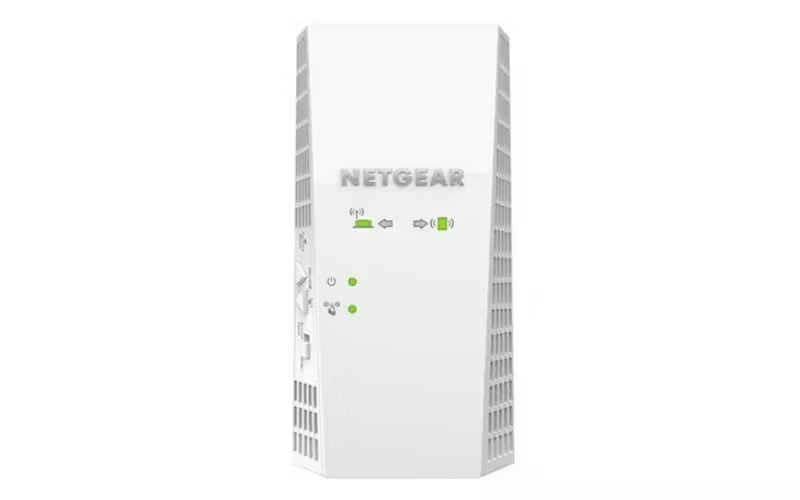
- WiFi standard: 802.11ac
- WiFi Bands: 2.4 & 5GHz
- Security: (WPA/WPA2–PSK) and WEP
- Manufacturer’s Warranty: 1-year limited
$$
Linksys AC1900 Gigabit Range Extender MU-MIMO RE7000
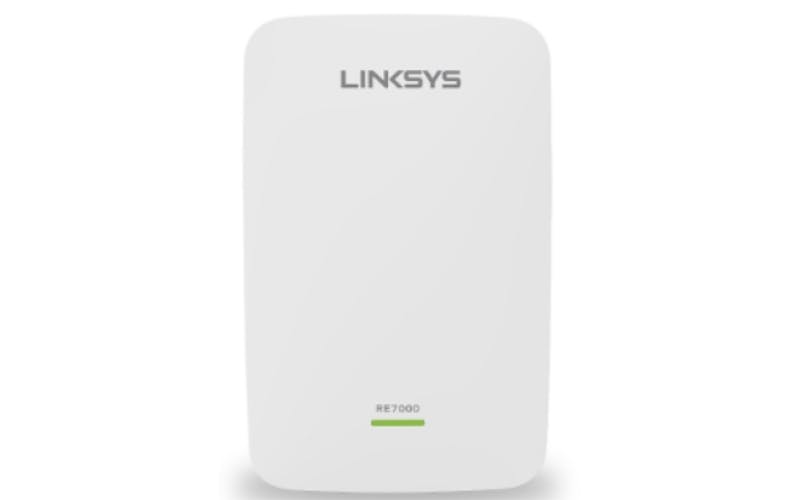
- WiFi standard: 802.11ac
- WiFi Bands: 2.4 & 5GHz
- Security: WPA, WPA2, WEP
- Manufacturer’s Warranty: 1-year (for U.S.)
$$
NETGEAR Nighthawk Mesh X6S Tri-Band WiFi Mesh Extender (EX8000)
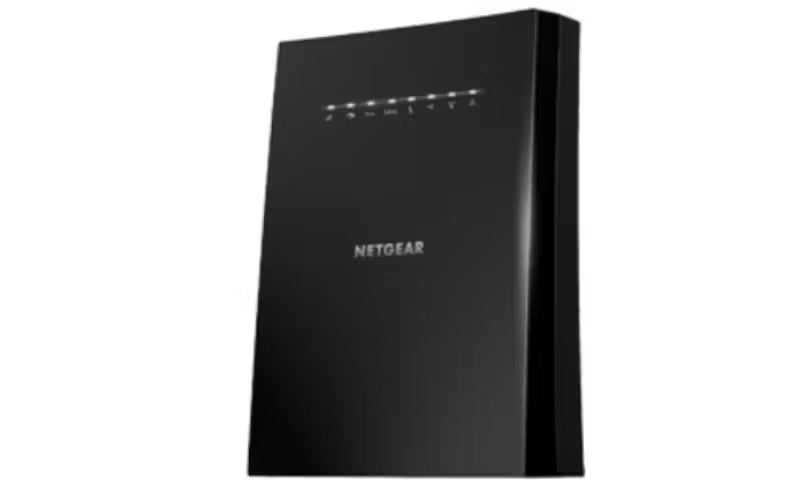
- WiFi standard: 802.11ac
- WiFi Bands: 2.4 & 5GHz
- Security: (WPA/WPA2–PSK) and WEP
- Manufacturer’s Warranty: 1-year limited
$$$
Amped Wireless RE1300M Artmeis-Ex High-power AC1300 WiFi Range Extender
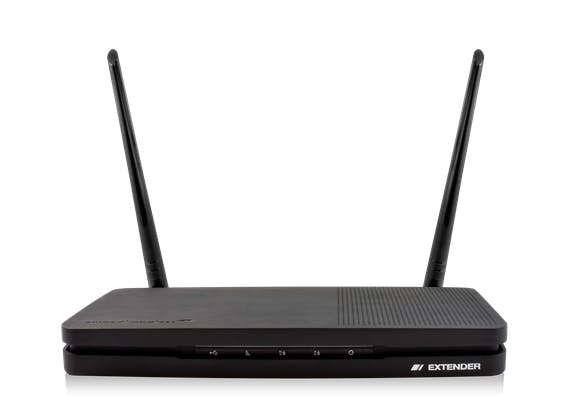
- WiFi standard: 802.11a/b/g/n/ac
- WiFi Bands: 2.4 & 5GHz
- Manufacturer’s Warranty: 1 year
$
TP-Link AC1900 WiFi Range Extender
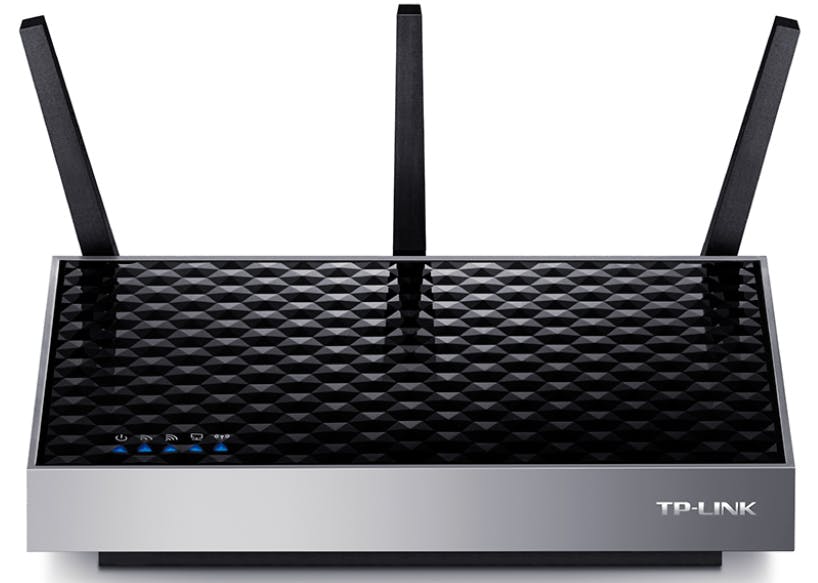
- WiFi standard: 802.11a/b/g/n/ac
- WiFi Bands: 2.4GHz & 5GHz(11ac)
- Security: 64/128-bit WEP, WPA-PSK / WPA2-PSK
$
Product Details
NETGEAR Nighthawk X4 AC2200 Dual-Band Range Extender

Best overall value
Technical Specifications:
- WiFi standard: 802.11ac
- WiFi Bands: 2.4 & 5GHz
- Security: (WPA/WPA2–PSK) and WEP
- Manufacturer’s Warranty: 1-year limited
The plug-in Nighthawk X4 AC2200 uses one WiFi name and uses the Smart Roaming feature to give you the coverage you need throughout your home or office. No new password is needed, and you can connect all your smart devices. Keep in mind that this product requires a firmware upgrade and factory reset to access the Mesh WiFi features. Reviewers enjoy this booster for its low maintenance, ease of use and its reliable internet connection. It easily reaches remote corners of the home for uninterrupted browsing and steaming.
PROS:
- One WiFi name
- Smart Roaming feature
- Easy to use
CONS:
- Factory reset and firmware needed for Mesh WiFi
Rating:
Linksys AC1900 Gigabit Range Extender MU-MIMO RE7000

Best for ease of installation
Technical Specifications:
- WiFi standard: 802.11ac
- WiFi Bands: 2.4 & 5GHz
- Security: WPA, WPA2, WEP
- Manufacturer’s Warranty: 1-year (for U.S.)
Your home won’t have any more WiFi dead zones with the Linksys AC1900. Multiple users can be connected to this network extender that uses Spot Finder Technology to find the best area for placement in your home for optimal performance. Need to access WiFi outside? Linksys AC1900 can reach it. If you prefer simple, easy-to-set-up products that offer similar results to larger, more complicated devices, then the Linksys AC1900 Gigabit Range Extender is the best option for you, according to reviewers.
PROS:
- Spot Finder Technology to simplify placement
- Simple installation
- One network for 2.4GHz connections
CONS:
- According to an online report, 5GHz connections show up as a separate network
Rating:
NETGEAR Nighthawk Mesh X6S Tri-Band WiFi Mesh Extender (EX8000)

Best for streaming
Technical Specifications:
- WiFi standard: 802.11ac
- WiFi Bands: 2.4 & 5GHz
- Security: (WPA/WPA2–PSK) and WEP
- Manufacturer’s Warranty: 1-year limited
This sleek WiFi extender can boost your internet connection with speeds up to 3Gbps. Dead zones all over your home and outdoor areas will be covered so that your streaming and searching never slows down. It is a stand-alone device that only uses one network so that all your devices can be connected in the same place. If you have wired game consoles or smart TVs, the Nighthawk X6S has four Gigabit Ethernet ports you can connect to. Reviewers recommend it for its ease of setup, its high-speed performance even with many devices connected and works well through rooms with concrete walls.
PROS:
- Speeds up to 3Gbps
- Good aesthetics
- One WiFi Name
CONS:
- Expensive
Rating:
Amped Wireless RE1300M Artmeis-Ex High-power AC1300 WiFi Range Extender

Best for price
Technical Specifications:
- WiFi standard: 802.11a/b/g/n/ac
- WiFi Bands: 2.4 & 5GHz
- Manufacturer’s Warranty: 1 year
If you are a gamer, or you have gamers in the house, this extender will effectively produce the necessary amount of network connection you’ll need to keep a game uninterrupted. Its two antennas and eight advanced amplifiers provide 12,000 square feet of coverage with speeds up to 1.2Gbps. According to reviewers, the coverage is strong all 24 hours of the day, works well with multiple devices connected to it, and can even reach from home to guest home.
PROS:
- Affordable
- 5 Ethernet ports
- USB port for file sharing
CONS:
- Limited speeds compared to other extenders
- Fewer ratings compared to other extender
Rating:
TP-Link AC1900 WiFi Range Extender

Best for large homes
Technical Specifications:
- WiFi standard: 802.11a/b/g/n/ac
- WiFi Bands: 2.4GHz & 5GHz(11ac)
- Security: 64/128-bit WEP, WPA-PSK / WPA2-PSK
- Manufacturer’s Warranty: See manufacturer’s website for details https://www.tp-link.com/us/support/replacement-warranty/
The TP-Link extender has 700mW amplifiers that work in connection with the three antennas to deliver a steady connection no matter how far from the device you are. It has a dual core 1GHz processor and Beamforming Technology, which increases bandwidth by focusing the WiFi transmission for optimal performance. This user-friendly extender will work well with any router you have. For the price, reviewers say it’s one of the best WiFi extenders you can get for full coverage in your home. Beware that the set up may require you to do a firmware update on your router.
PROS:
- Beamforming to improve bandwidth
- User friendly
- Good combination of performance and cost
CONS:
- No parental control features